Afghanistan War, CIA Sponsored Terror, Civil Liberties, Criminalizing Dissent, FBI Intrusion, Guantanamo, Habeas Corpus, Human Rights, Political Prisoner, Prison Industry, Supreme Court, Surveillance, Targeting Muslims, Torture, War Resister
Podcast: Play in new window | Download
Updates:
—–
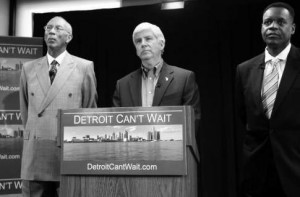
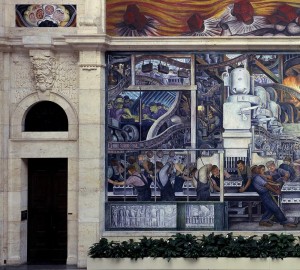
Judge Ruling Allows Detroit Bankruptcy To Move Forward
This summer we spoke with retired auto worker and activist Dianne Feeley about the plans to wipe out the pensions and health benefits of all current and retired city workers by emergency manager of Detroit, Kevyn Orr. We also looked at the history of workers in Detroit from the perspective of black workers and the broader pattern of oppression. Last week, a ruling by Judge Stevens W. Rhodes of the U.S. Bankruptcy Court allows the city of Detroit to move forward in the bankruptcy process. The cradle of the American auto industry will now be allowed to pay off debts and restore essential services.
Professor Laura Bartell:
- It is the first time that a bankruptcy judge that pension obligations constitute contractual obligations that are subject to diminution in bankruptcy.
- Although its rattled pensioners nationwide, its really not that extraordinary.
- The healthcare was never protected by the Michigan Constitution. Everyone has always known that healthcare was subject to modification by the city.
- The cuts in health care are going into effect I believe in February for city employees.
- When we’re talking about the pensions we’re talking about the retirees both the firefighters and policemen unions retirees.
- The city maintains that the plans are underfunded by 3.5 billion dollars.
- The union believes that number is vastly inflated based on projected returns that are too low. Whatever the number is its somewhere between 800 million and 3.5 billion.
- The policemen and firefighters don’t have the benefit of social security.
- You’re not talking about a lot of money going to any individual so if you cut the pension to any particular individual its obviously going to be a major cut for that individual.
- The major problem that Detroit has suffered was a vast decline in population.
- It used to be a much larger city. It’s footprint is still a very large city but the number of people living in that footprint is much smaller than it used to be.
- Among that small population there’s an even smaller number of people actually working and paying taxes.
- So the money coming in to meet the obligations of Detroit has been constantly shrinking.
- Detroit’s obligation to retirees in terms of pensions and healthcare is up at 38 percent and rising constantly. – and in addition we had severe mismanagement of city government including criminality. I’m sure everyone knows our former mayor is now in prison.
- My guess is the pensioners will be hit far less severely than the bond holders. Bond holders are making an investment and taking a risk.
- That’s what bankruptcy is about is all people who have done something to become creditors to the city and they’re not going to get what they deserve.
- That’s the problem, everybody is deserving, everybody should get paid.
- The problem is not that the governor has suddenly taken away the democratic rights of Detroit. We’ve had an emergency manager law for many years in the state of Michigan.
- Detroit is the latest and the biggest to have that happen.
- The next stage is a presentation of a plan of adjustment which he will present to creditors at the end of this month and file with the court at the beginning of January.
Guest – Professor Laura Bartell, after graduating from Harvard Law School, where she was an officer on the Harvard Law Review, she clerked for Judge Alvin B. Rubin of the U.S. Court of Appeals for the 5th Circuit in New Orleans. She then entered practice in New York where she became a partner in Shearman & Sterling, specializing in bank financing and bankruptcy work. She is a member of the American Law Institute and American Bankruptcy Institute and has published articles on bankruptcy topics, federal court-awarded attorneys’ fees and costs, and the attorney/client privilege and work-product doctrine. She teaches Property, Secured Transactions, Bankruptcy and Creditors’ Rights and Effective Oral Communication for Lawyers.
—–
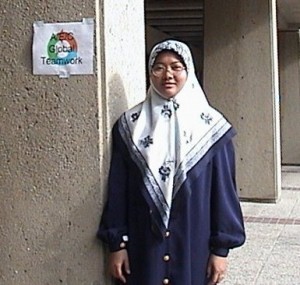
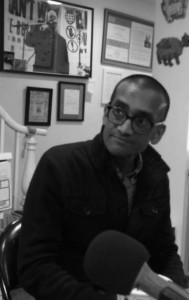
Terrorist Watch Lists and No Fly Lists Cases
How do governments compile lists called no-fly lists of individuals often placed on terrorist watch lists? As we’ve seen, the predictions about individual behavior of Muslims, Communists or Japanese-Americans have often been wildly inaccurate and cause a great deal of harm to these communities. Today to discuss the no-fly list and a recent case proceeding through the courts is returning guest Shane Kadidal senior managing attorney of the Guantánamo Global Justice Initiative at the Center for Constitutional Rights in New York City.
Attorney Shane Kadidal:
- There are broad watch lists and there are lists that people are more familiar with in concept and that’s what being litigated out in California, somebody placed on the no-fly list.
- There are two kinds of no-fly lists, there’s the selectee list where some where on the order of tens of thousands of people are designated for additional security checks when they go through the TSA.
- Then there’s the smaller list which contains several thousand names that sometimes you hear referred to as the no transport list. That’s people who can’t board a flight under any circumstances.
- The US shares its list at times with other countries. We don’t know how much sharing exists.
- The case in California is super interesting because the person who got stopped doesn’t seem like the kind of person that would get stopped except for the fact that she wears a hijab.
- The Terrorism Screening Center is responsible for putting people on the list.
- The interesting thing about this case is that daughter that was put on the list was 14, eight or nine years ago and is now a lawyer in Malaysia and was supposed to testify and was told by Malaysian airlines you are on the no-fly list.
- She’s seeking damages because she couldn’t fly back. This is really the first case to get to trial basically.
- The ACLU has a challenge to which kind of a pure due process challenge case in a case called Lateef v Holder.
- You got put on a list and there’s no real process for challenging those facts.
- If its an accidental match, somebody has the same name as you, or close to you. You can go through this challenge procedure called TRIPP.
- If you win your challenge, they’ll give you a number that you can enter in when you buy your plane ticket.
- CCR along with the Clear Clinic at CUNY Law School filed a case at the beginning of October. The gist of it is that people will end up on the no-fly list and if you complaint about it the FBI will say, if you talk to us you can be taken off the list if you agree to work as an informant on the Muslim community.
- What’s interesting about the couple thousand names (no-fly list) which is much smaller than the number which are on these lists intended to intercept terrorism finance like the list the treasury department maintains like a 500 plus page phone book.
- You can imagine that there might be some logical rationale behind having a short list of people who get a little scrutiny and hope it has more due process than the selectee list has now.
- But the fact that there are some people who are not allowed to fly under any circumstances with any level of search scrutiny that doesn’t seem to make any sense and seems to fit very neatly into our complaint.
- I question if this list can make rational sense.
- Typically if you’re on the no-fly list you get turned away. Typically you don’t get arrested.
- OFAC list, is sort of a list of parties you’re not allowed to do business with. It combines not only sanctions directed at whole countries but also the variety of sanctions directed at terrorism finance.
- This is just like other cases where secrecy is at the core of the defense of the program.
Guest – Shane Kadidal, senior managing attorney of the Guantánamo Global Justice Initiative at the Center for Constitutional Rights in New York City. He is a graduate of the Yale Law School and a former law clerk to Judge Kermit Lipez of the United States Court of Appeals for the First Circuit. In his eight years at the Center, he has worked on a number of significant cases in the wake of 9/11, including the Center’s challenges to the detention of prisoners at Guantánamo Bay (among them torture victim Mohammed al Qahtani and former CIA ghost detainee Majid Khan), which have twice reached the Supreme Court, and several cases arising out of the post-9/11 domestic immigration sweeps. He is also counsel in CCR’s legal challenges to the “material support” statute (decided by the Supreme Court last term), to the low rates of black firefighter hiring in New York City, and to the NSA’s warrantless surveillance program.
——————————————————————————
CIA Sponsored Terror, Civil Liberties, Criminalizing Dissent, Habeas Corpus, Human Rights, Military Tribunal, Supreme Court, Surveillance, Targeting Muslims, Torture, War Resister
Podcast: Play in new window | Download
Updates:
——
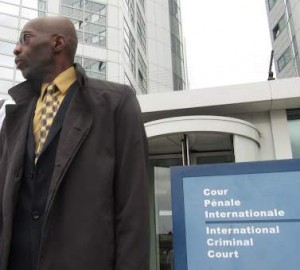
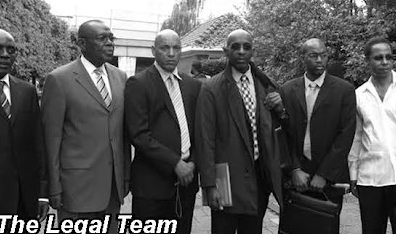
Pan African Solidarity Hague Campaign to Delegitimize the ICC
In the month June last year, the Pan-African Solidarity Hague Committee delivered a petition to the International Criminal Court at the Hague, Netherlands demanding they prosecute the United States, Great Britain, France, Italy, Canada, and NATO for war crimes and crimes against humanity in Libya, Cote d’lvoire, Haiti and the US. This campaign began in May of 2011 when thousands gathered to protest the US/NATO bombing of Libya, attacks on Zimbabwe and the racist assault against African-Americans in the United States. 16 months after delivering the petition and sending follow up letters, the Pan African Solidarity Hague Committee haven’t received a response. The organization is now reaching out to National Lawyers Guild members and law students to help expose the International Criminal Court.
Attorney Roger Wareham:
- The International Criminal Court was established in 2001-2002, supposedly to replace the different ad-hoc international tribunals that had been set up to deal with war crimes and crimes against humanity.
- It’s supposed to be even handed, no double standard – everyone is held to the same level of accountability.
- The membership, you have to sign on to be a part of it. The United States was closely involved in the process of setting up the ICC.
- The U.S. insisted that it would not be subject to prosecution by the ICC, although under the Security Council of the United Nations could recommend cases for the ICC.
- Given the plethora of human rights violations and war crimes that have been committed around the world, the only people that the ICC is presently prosecuting are Africans.
- The only prosecutions have been of Africans.
- Our involvement in taking it to the ICC was in particular to expose its nature that its really not an international tribunal that would look at the question of war crimes across the board and that its really another instrument in the West’s arsenal of the exploitation of Africa.
- Ostensibly, dealing with human rights violations, the ICC has zeroed in on Africa.
- There’s been a response and rebellion among several of the African countries around this clear bias.
- Three of the five permanent members are not on the ICC, Russia, United States and China.
- I think what we want to do is we want a single standard or no ICC.
- Email: D12M@aol.com
- www.PASHC2012.blogspot.com
Guest – Attorney Roger Wareham, a member of the December 12th Movement, an organization of African people which organizes in the Black and Latino community around human rights violations, particularly police terror. Wareham is also the International Secretary-General of the International Association Against Torture (AICT), a non-governmental organization that has consultative status before the United Nations.
—–

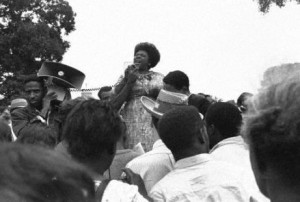
Lawyers You’ll Like – Attorney Mel Wulf
We’re joined today by Attorney Mel Wulf, former legal director with the American Civil Liberties Union for 15 years. He was a law partner with former US Attorney General Ramsey Clark during the Kennedy Administration and much more. Wulf was part of some of the greatest contributions to the civil rights movement. He’s now retired after practicing law for 54 years. As part of our Lawyers You’ll Like series, we talk with Wulf about his work with the ACLU during the early 60s, and also about the forming of the Lawyers Constitutional Defense Committee.
Attorney Mel Wulf:
- Phil Agee was a dissident CIA agent who spent decades working against the CIA, published a couple of books.
- He lost his passport because when the dissidents took over the embassy in Tehran in 1979, the New York Post carried a story accusing Phil of helping the students who’d invaded the embassy to put together all of that written material that had been shredded.
- It was another New York Post bald faced lie.
- The State Department, based upon that story revoked his passport.
- I had represented Phil Agee, I was his principle lawyer for 30 years.
- Agee was very widely disliked in Washington because he was well known to be a CIA dissident who disclosed the names of many CIA agents.
- If Snowden went the same route today, he would do even worse in this Supreme Court than I did. That’s why Snowden won’t get his passport, thanks to me.
- I was for the workers and not for the bosses and I’ve always been for the workers and not for the bosses, which I think is the distinguishing political factor in our world. Which side are you on?
- I got my Bachelors Degree in ’52 and I had a Navy Commission which I had gotten from the New York State Maritime Academy earlier on.
- The draft board sent me a 1A notice, I applied to Columbia and when I finished Columbia they sent me another 1A notice because the draft was still on. I spent 2 years in the Navy as a Liuetenant Junior Grade Officer in Southern California.
- I went to work at the ACLU in 1958 as the assistant legal director, in 1962 I was given the job of the legal director of the ACLU.
- I had actually been going down to Mississippi from 1961 to 1962, working with then one of the two black lawyers who were practicing in Mississippi.
- We tried a couple of capitol cases in Mississippi. I continued to argue the systematic exclusion of blacks from the jury.
- I finally got a case up to the Supreme Court on that issue.
- Lawyers Constitutional Defense Committee: We had several hundred lawyers who went down to Mississippi for periods of a week or two. They were representing people being arrested during the Mississippi summer.
- Most of the judges allowed these lawyers to make some sort of presentation.
Guest – Attorney Mel Wulf, former legal director with the American Civil Liberties Union for 15 years. He was a law partner with former US Attorney General Ramsey Clark during the Kennedy Administration and much more. Wulf was part of some of the greatest contributions to the civil rights movement. He’s now retired after practicing law for 54 years.
——————————————————–
CIA Sponsored Terror, Civil Liberties, Criminalizing Dissent, Habeas Corpus, Human Rights, Prison Industry, Surveillance, Torture, War Resister
Podcast: Play in new window | Download
Updates:
- Abu Anas al-Libi Kidapping Update
- Glenn Greenwald Leaves The Guardian
—–
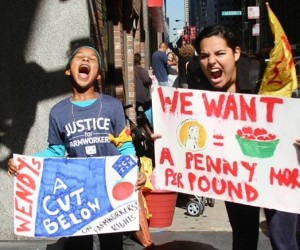

The Coalition of Immokalee Workers March On Union Square For Wendy’s Fair Food Campaign
We hear the voices of marchers involved in supporting the Coalition of Immokalee workers to urge Wendy’s to join its four fast food competitors in the award-winning social responsibility program that’s putting an end to decades of abuse in the fields. Burger King, Taco Bell, McDonald’s and others have come to the table to dialogue with farm workers to improve wages and working conditions in their supply chains. This demonstration was held on the eve of the CIW winning the Roosevelt Institute’s Freedom from Want Medal.
—-
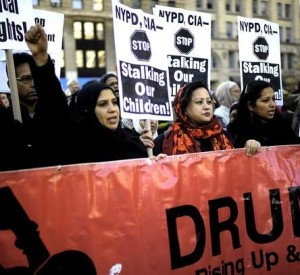
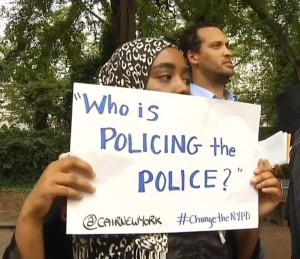
Handschu Hearing on NYPD Muslim Surveillance
Earlier this month, the federal district court in Manhattan required the New York City Police Department to defend its Muslim spying program. The hearing lasted several hours and revealed what many listeners to this show may already know, and that is how the NYPD Muslim spying program has been found by the Associated Press to target innocent Muslims based on nothing more than their faith. The fallout from these spying programs are revealed in the stories related by today’s guest .
Fahd Ahmed:
- DRUM stands for Desis Rising Up and Moving. It’s a community organization of low income South Asians, organizing for worker rights, immigrant rights, racial justice.
- We’re a membership based organization of about 2000 low income South Asians. So they’re directly effected by these issues.
- About 2 years ago the Associated Press started releasing a series of articles that essentially confirmed what people in our communities had been feeling for years.
- That the NYPD has an extensive spying network on the New York City Muslim community.
- From their houses of worship to their work sites, to their social networks. The way that they accomplish this is through the use of under cover officers.
- Through the use of informants, many of whom are paid money for their services, and also through the use of surveillance equipment.
- We have members in our organization that have been directly targeted by the NYPD over the last 8-9 years.
- Even if you’re not doing anything wrong, this program is very bad for you.
- On the day the first AP report came out, we had launched a survey project to collect data.
- An Arab cab driver who cooperated with the police, he was eye witness to the person who conducted the robbery.
- He testified in court, the person was convicted. The NYPD then approached him several months later and said we’d like to talk with you about that case.
- They tell him we want you to become an informant for us. When he declines, for the next two weeks he ends up being followed in dark unmarked cars.
- We do believe its about a few 100 hundred in the police department in terms of intelligence.
Guest – Fahd Ahmed, Fahd came to the United States as an undocumented immigrant from Pakistan in 1991, and went on to attend Vanderbilt University, and CUNY School of Law. Fahd joined DRUM in 2000 when he had family members facing deportations. Within DRUM, Fahd led the work with Muslim, Arab, and South Asian immigrant detainees before, and immediately after 9/11, by coordinating the detainee visitation program. Fahd was a recipient of the Haywood Burns Fellowship from the National Lawyers Guild, served as an Ella Baker intern at the Center for Constitutional Rights, as a legal consultant with the Juvenile Justice Project of Louisiana, and as a lecturer and researcher on Islamophobia, National Security, and social movements at the Arab and Muslim Ethnicities and Diasporas Initiative at the College of Ethnic Studies at San Francisco State University
—-


Two And A Half Party System Debt Ceiling Crisis
Today we’ll examine in depth how the United States reached the recent crisis with regard to debt ceiling. If you think its just the Tea Party that wants to cut current government benefits such as Social Security and Medicare you’d be wrong. It’s also the Obama Administration
Professor Jack Rasmus:
- The Republicans strategic focus since 2011 has been to cut the deficit at the expense of discretionary spending and in particular to target social security and medicare and medicaid.
- In the fiscal cliff deal of last year, they succeeded in pushing through most of the Bush tax cuts. 4 trillion in tax cuts.
- The Republicans in the last 2 years have cut 2.2 trillion dollars in government spending.
- They’re going to use the debt ceiling in order to extract more spending cuts, this time, social security and medicare, and probably more tax cuts.
- Obama has already called for 630 billion dollars in social security and medicare cuts. That’s a starting point, a beginning of negotiating.
- What’s happened is that the tea party have injected themselves into this thing. We’ve got 2 and a half parties in Congress now. The Tea Party is a faction of the Republican Party and its terrorizing the Republican Party even though its a minority in the House.
- The Tea Partiers are grandstanding for elections. This is all about mid-term elections next year.
- As far as the shutdown is concerned, that is a Tea Party problem.
- They have Republicans terrorized that they’re going to lose primaries.
- There’s another group within the Tea Party that are opportunists, they’re riding the crest.
- The people behind the Tea Party, out there in the grassroots, you know, the billionaires are funding it and the Heritage Action Groups. I think there are opportunists and confused ideologues.
- What you’re going to see is Obama blocking with corporate pressure on the leadership of the Republicans, and all 3 of them then giving the Tea Party a choice.
- Last year, unions lost 500 thousand members, even as a million and a half new jobs were created.
- Something real dangerous is going on with the labor movement.
- There is a nation wide formation called the Emergency Labor Network.
- Obama has been in favor of cutting Social Security for quite some time. He’s also been in favor of cutting the corporate tax rate from 35 to 28 percent. That doesn’t sound like the Democratic Party of years past.
Guest – Professor Jack Rasmus, Ph.D Political Economy, teaches economics and politics at St. Mary’s College in California. He is the author and producer of the various nonfiction and fictional workers, including the books ‘Obama’s Economy: Recovery for the Few‘, Pluto Press, 2012, ‘Epic Recession: Prelude to Global Depression‘, Pluto Press, 2010, and ‘The War at Home: The Corporate Offensive from Ronald Reagan to George W. Bush‘, Kyklosproductions, 2006
——————————————————
Afghanistan War, CIA Sponsored Terror, Civil Liberties, Criminalizing Dissent, FBI Intrusion, Habeas Corpus, Human Rights, Political Prisoner, Prison Industry, Surveillance, Targeting Muslims, Torture, War Resister
Podcast: Play in new window | Download
Updates:
- Lynne Stewart Turns 74
- Phone Campaign For Lynne Stewart To Be Let Out Of Prison Under Compassionate Release
- Director of Federal Bureau of Prisons – 202-307-3250
- U.S. Attorney General Eric Holder – 202-353-1555
- U.S. President Barack Obama – 202-456-1111
- Che Guevara Anniversary
- Shocking Statistics On Americans Under 30
—–

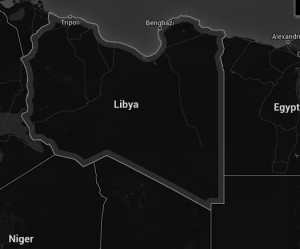
The United States Military Kidnapping In Libya And Failed Kill or?Capture In Somalia
The United States military had gone into 2 parts of Africa. In one case they went into Libya and brazenly seized a man who they claim to be a leader of Al-Qaeda, his name is Abu Anas al-Libi. He was seized out of Tripoli, Libya. The U.S. also went into Somalia and attacked a house or a compound in apparently an effort to grab or kill an alleged senior leader of the Somali group al-Shabab. Michael Ratner reports in this update.
Attorney Michael Ratner:
- It was shocking news to see that the United States think it can go into sovereign countries and kidnap, kill whoever they want. Did the US have the right to go into Libya at all?
- Article 24 of the UN Charter says that the territorial integrity of the a country is complete, except of the case of self-defense or authorized by the UN.
- There was no authority by the UN or international law to go into Libya.
- Then the question came up – Did Libya consent to it?
- He’s on some U.S. ship. It’s called the San Antonio.
- They’re keeping him floating on this ship while they’re going to interrogate him.
- Its true, Obama when he took office 5 years ago, he banned torture and he said all interrogations had to be done according to the Army Field Manual.
- Annex M allows 3 kinds of techniques that I think constitute cruel and inhuman, degrading treatment and taken together would constitute torture.
Law and Disorder Co-host Attorney Michael Ratner, President Emeritus of the Center for Constitutional Rights (CCR), a non-profit human rights litigation organization based in New York City and president of the European Center for Constitutional and Human Rights (ECCHR) based in Berlin. Ratner and CCR are currently the attorneys in the United States for publishers Julian Assange and Wikileaks. He was co-counsel in representing the Guantanamo Bay detainees in the United States Supreme Court, where, in June 2004, the court decided his clients have the right to test the legality of their detentions in court. Ratner is also a past president of the National Lawyers Guild and the author of numerous books and articles, including the books The Trial of Donald Rumsfeld: A Prosecution by Book, Against War with Iraq and Guantanamo: What the World Should Know, as well as a textbook on international human rights.
—-
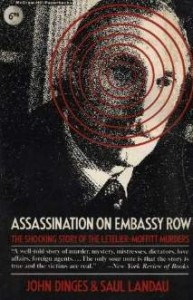

The United States, Iraq, Afghanistan, Iran, Syria and Israel Part 2
October 7th of 2013 marked the 12th anniversary since the United States invaded Afghanistan as the war drags into its 13th year. The Afghanistan war and the Iraq war have been estimated to cost tax payers up to 6 trillion dollars. This year marks the 10th anniversary of the Iraq War – an illegal war launched despite the global protest in the streets.
Phyllis Bennis:
- On the one hand it was a huge victory for the U.S. and the anti-war mobilization effort, that we managed to prevent what was a very imminent US strike. The British also had their missiles ready to go. They were very close.
- In combination with the British Parliament decision to say no, led to a huge shift in what the Obama Administration was prepared to do.
- It turns out they were prepared to go to war without UN permission. They were ready to do without the UN, without NATO, without the Arab League, but not without the Brits.
- This was a political decision, this wasn’t rooted in concerns about international law or any kind of strategic or military necessity.
- When it was turned over to Congress, a lot of organizations mobilized and said you know what, we’re not going to let this happen.
- Members of Congress were reporting that their emails were running 500 to 1, 800 to 1, 1000 to 1 against US military intervention.
- What we found is that people were not willing to sign on to another war after so many failed wars in the region.
- You can call it war fatigue but it’s really about learning a lesson, that war is not an answer to these problems.
- Given that there have been 100 thousand victims in this war (Syria) about a third of them civilians, about 43 percent regime soldiers and militia, about 18 percent rebel soldiers. The rest were civilians.
- To claim this was all about the humanitarian consequences, simply, that’s not the case.
- The voices that have been marginalized the most are the original political opposition in Syria, who were incredibly brave and courageous, still out there fighting.
- The regime in Syria was forced to sign on to the chemical weapons treaty. That’s huge, there are only 7 countries in the world that had not signed that treaty.
- Israel of course being another one.
- The number of people killed with chemical weapons in Syria is tiny compared to the number of people killed with conventional weapons.
- The five wars in Syria, the regional power struggle, the sectarian war, the US-Russian war, the US-Israel vs. Iran war, those are still underway in Syria.
- President Rouhani, the new president of Iran, was on a major charm offensive.
- Rouhani has said ” I have the backing of the Supreme Leader in a new approach to our nuclear negotiations.”
- There are enormous pressures in the U.S from the arms industry, from AIPAC, from hawks in Congress of all sorts.
- The Palestinians are the ones that will pay the price if there is an agreement between the US and Iran because the US will be determined to give Israel something.
- Iraq has become as violent as it was in the height of the sectarian wars of 2006 and 2007.
- Hundreds of people are being killed on a daily basis. It’s a disaster. Much of that is the result of the exploding war in Syria. Syria and Iraq share a long border. It’s a very porous border.
- The division of Libya into 2 or 3 regions is a very likely possibility.
- Saul Landau was a giant in our movement, he made one of the first films about Fidel. It was called Fidel it was made in 1960 a year after the revolution.
- He died about a month ago after a 2 year battle with a very virulent cancer.
- Saul had been at IPS almost at the beginning. He wrote the book Assassination on Embassy Row that documented with such precision on how Operation Condor had gone forward.
Guest – Phyllis Bennis, directs the New Internationalism Project at IPS. She is also a fellow of the Transnational Institute in Amsterdam. She has been a writer, analyst, and activist on Middle East and UN issues for many years. In 2001 she helped found and remains on the steering committee of the U.S. Campaign to End Israeli Occupation. She works closely with the United for Peace and Justice anti-war coalition, co-chairs the UN-based International Coordinating Network on Palestine, and since 2002 has played an active role in the growing global peace movement. She continues to serve as an adviser to several top UN officials on Middle East and UN democratization issues.
—————————————————————-
Civil Liberties, Criminalizing Dissent, FBI Intrusion, Habeas Corpus, Human Rights, Surveillance, Targeting Muslims, Torture, War Resister
Podcast: Play in new window | Download
Updates:
—–

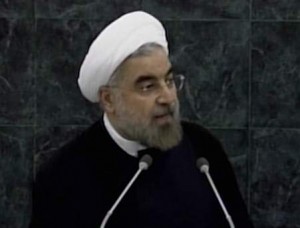
The United States, Iraq, Afghanistan, Iran, Syria and Israel
President Barack Obama addressed the 68th session of the United Nations General Assembly last week, near the end of September. His speech reflected some of the shift in global politics in the Middle East, especially in Syria. He also spoke about Iran, and mentioned the usual, “we are determined to prevent Iran from developing a nuclear weapon.” Obama said “we are not seeking regime change we respect the right of the Iranian people to access peaceful nuclear energy.” However Iran has signed on to the Non-Proliferation Treaty which recognizes the right to develop, research, produce and use nuclear energy for peaceful purposes without discrimination.
William Blum:
- One must accept the basic premise that the United States wants to dominate the world.
- In that context it becomes clear that the main problem we have with other countries is one of disobedience.
- Our closest ally in the Arab world is Saudi Arabia, if that’s not the most oppressive government in the world then damn close to it.
- We’ve overthrown the 3 leading secular governments of the Middle East. First Iraq, and then Libya, and now we’re in the process to attempt to overthrow the Syrian government.
- In ’79, the Shah of Iran was overthrown by various forces, but the ones that came to power were the Islamics.
- It’s a myth that the U.S. was totally opposed to Islam coming to power in Iran then.
- What Washington feared is the Left coming to power in Iran.
- The Left, all over the world, are the least likely to be obedient to Washington, to become a client state.
- So the Left is the first target of U.S foreign policy.
- Israel fears Iran, in the same way it fears Iraq and Libya. Any country in the Middle East that had some military power and not falling in line as an obedient friend or follower of Israel, that was a target of Israel, which means target of the U.S.
- The 3 main targets have all been attacked by Washington and that’s where we are today.
- Cuba then and now has represented what Washington fears greatly, a good alternative to capitalist system.
- They have inspired people and countries all over the world, especially in Latin America.
- It’s not very well known that throughout the 70s and into the 80s, Afghanistan had a fairly progressive government. Women had full rights. I’ve seen photos of that time, of women walking around in mini-skirts.
- What happened to that society and government? Our dear government overthrew it.
- It’s amazing when we hear people say we have to stay in Afghanistan to help the women there.
- Saddam Hussein, as much of a dictator as he was, he still ran a welfare state.
- The people in their daily life were much better off than they are today and there was peace and order
- Syria is not going to make a good client state to the United States and Israel. Syria is a bit too friendly with Russia.
- It’s amazing how sensitive we are to those who will not embrace the American empire.
- Almost all the leading people in Israel except for Netanyahu, they know Iran is not a threat. It’s all hype.
- Netanyahu needs this hype and the U.S. needs it.
- There’s a very growing trend now to be turned off by all of this war. The vote in Congress which if it were held would have been against invading Syria.
- The American public is very tired of these wars.
- Sign up for the monthly Anti-Empire Report.
Guest – William Blum, has been a freelance journalist in the United States, Europe and South America. His stay in Chile in 1972-3, writing about the Allende government’s “socialist experiment” and its tragic overthrow in a CIA-designed coup, instilled in him a personal involvement and an even more heightened interest in what his government was doing in various parts of the world. In the mid-1970’s, he worked in London with former CIA officer Philip Agee and his associates on their project of exposing CIA personnel and their misdeeds. His book on U.S. foreign policy, Killing Hope: U.S. Military and CIA Interventions Since World War II, first published in 1995 and updated since, has received international acclaim.
—–

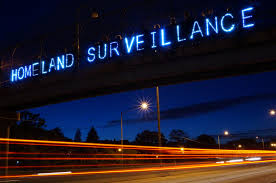
EFF Fights Back Against NSA Spying
A few shows ago we asked Attorney Carl Messineo with the Partnership for Civil Justice Fund what legal steps are they taking to stem the pervasive breach of civil liberties from the National Security Agency’s massive surveillance program. Our own Heidi Boghosian, author of the book Spying On Democracy: Government Surveillance, Corporate Power and Public Resistance has discussed in detail the public fight back from a legal standpoint. David Greene, a senior staff attorney with the Electronic Frontier Foundation brings us up to date about ongoing litigation, lawsuits and FOIA requests to continue the fight back against government and corporate spying.
Attorney David Greene:
- There’s a lot we still don’t know about how much they know about us.
- We do know that they have several programs to collect communications, data. They have a program called UPSTREAM that collects all internet communications.
- This actually happens at the fiber level. – where the switching facilities are at the splitter, split the transmissions to where the communications company wants it to go and one that actually goes toward the government.
- We at EFF have known about that and had a lawsuit pending for 7 years now.
- Our lawsuit was originally against AT&T and then Congress granted telecoms immunity, so.
- One of the other things we’ve learned about is a program that also collects internet records called PRISM. PRISM seems to be focused on collecting email correspondence between foreign targets and the United States.
- They’re basically collecting the call data of every telephone call made in the United States. Right now they’re saying they’re not collecting the content of the calls but only the metadata.
- They’re also collecting social media data as well and doing things such as social mapping.
- There are several provisions of the Fourth Amendment and some of the issues here is the prohibition against unreasonable searches and seizures.
- Basically people’s information is being searched, being seized without a probable cause. A probable cause to believe these people actually did anything wrong.
- The Electronic Frontier Foundation is an organization that fights for civil liberties in the digital world.
- Whenever you go up against the government, you’re going to be out resourced.
- There are many parts about being a free person that requires a person to operate with some degree of privacy from there government.
Guest – Attorney David Greene, Senior Staff Attorney, has significant experience litigating First Amendment issues in state and federal trial and appellate courts and is one of the country’s leading advocates for and commentators on freedom of expression in the arts. David was a founding member, with David Sobel and Shari Steele, of the Internet Free Expression Alliance, and currently serves on the Northern California Society for Professional Journalists Freedom of Information Committee, the steering committee of the Free Expression Network, the governing committee of the ABA Forum on Communications Law, and on advisory boards for several arts and free speech organizations across the country.
—–
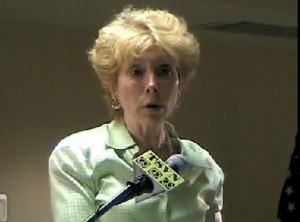
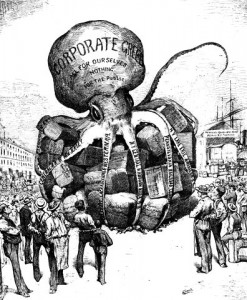
Left Forum 2013: Dr. Harriet Fraad Part 2
We hear part 2 of a presentation from Harriet Fraad, a hypnotherapist & psychotherapist in Manhattan. She writes regularly for Truthout, Tikkun and The Journal of Psychohistory. Her blog with Richard D. Wolff, Economy and Psychology appears at HarrietFraad.com and RDWolff.com. Her latest book is Bringing It All Back Home ed. Graham Cussano. Her article on Emotional and Sexual Life in a Socialist America written with Tess Fraad Wolff will appear in the book Imagine A Socialist America- (Harper Collins 2013). This panel explores what Socialism could look like in the United States.
———————————————————————————–
Civil Liberties, Criminalizing Dissent, Death Penalty, Habeas Corpus, Human Rights, Political Prisoner, Prison Industry, Surveillance, Torture, Truth to Power
Podcast: Play in new window | Download
——
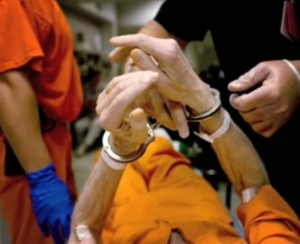
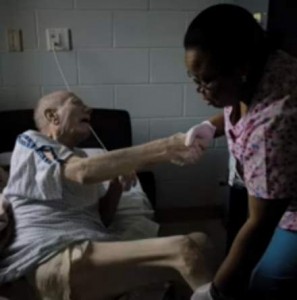
Corrections Association Program Releasing Aged Prisoners
Here on Law and Disorder we’ve reported about the Compassionate Release Program regarding Lynne Stewart’s condition. The CRP is designed to reduce the number of elderly and sick in prison, if they have a terminal health condition or a significant and permanent non-terminal health condition, disease or syndrome. This program is part of a larger effort to release aging prisoners in the United States. Nationally, the number of prisoners over age 55 nearly quadrupled from 1995 to 2010, eight times the pace of growth for the total prison population, according to a recent Human Rights Watch report. Because of long sentences handed out in the 70’s and 80’s, American prisons now serve as quasi-nursing homes, albeit lacking the long-term care we associate with geriatric facilities. We talk today about a major new initiative called the Corrections Association Program Releasing Aged Prisoners that’s working to make prison parole boards correctly assess elderly prisoner risk and get them out.
Laura Whitehorn:
- In New York State, there are about 9200 at the moment above the age of 50.
- By 2030, its estimated that about a third of the entire incarcerated will be over the age of 40. There will be at least 400 thousand.
- For the last 20 years this country has been drunk on the concept of lock em up and throw away the key.
- You lock em up and throw away the key. . .they’re gonna get old.
- Our project is called Releasing Aging People In Prison.
- These people have done a lot of time and the lowest rate of recidivism is in this group. They’re over the age of 50, have done 15-20 years in prison and have committed murder.
- This group is ready to be released without a threat to public safety.
- You’ve advocated for Lynne Stewart on this show for compassionate release. She’s in the Federal System.
- The Feds are very stingy with compassionate release, so is the state of New York. In 2011, I think it was, they let out 8 people on compassionate release, in a year when 200 people died in the system.
- I’m now 68, but I feel about 78 on some days.
- We don’t really need a new law to release the people we’re talking about.
- What we need is the parole board to follow the law. What we need is the state to follow the law for compassionate release for those who are ill.
- One thing we’re doing is we’re trying to join with other people in the state who’ve had enough of the way that parole board denies people over and over again and say use actual risk assessments that do exist.
- If the risk is low let them go.
- RAPP – Release Aging People In Prison – Harlem, NY – 2090 Adam Clayton Blvd, NY – 212-254-5700
- Email – mfarid@correctionalassociation.org
- www.nationinside.org/campaign/release-of-aging-people-in-prison
Mujahid Farid:
- The issue of mass incarceration has many facets. The impact on some communities is from the cradle to the grave.
- The prison population has somewhat stabilized. It’s still at a rate that beats out every other country. Although that rate has stabilized it hasn’t done so with the elderly.
- In New York State, the prison population has gone down 24 percent in the last 10 years.
- During that same 10 years the population of the elderly (in prison) increased by 64 percent.
- The zeitgeist in this country is about punishment and never giving up on punishing a person, especially those committed for serious crimes.
- In my own case, I had a sentence of 15 years to life, you would assume if I did the minimum sentence, if there were indications I had rehabilitated myself and shown that I was a changed person that I would’ve been released. But that didn’t happen. I served 18 years above and beyond that 15 year sentence.
- The sentencing structure that allows what we’re talking about is called an indeterminate sentencing structure. That means you’re given a minimum and a maximum.
- Some people get 10 to 20, some people get 10 to 15, and other with the most serious crimes get a number and on the end they get letters.
- In that indeterminate sentencing structure, there’s an indication that the prisoner should be released if they’re reformed or rehabilitated at that minimum posed term.
- In my case, I received a 15-life on attempted murder of a police officer. He didn’t get a scratch.
- That was the least amount imposed on me, I couldn’t get any less.
- So a person who is serving a sentence such as that would have an expectation of 15 years or whatever they have to be released if they change.
- To not give them a reason for the denial, saying its the nature of the crime, takes away hope from a person.
- I was arrested in 1978, I went upstate within 6 months. Before that 6 months came I had earned my GED. I did that while facing trial.
- I went upstate with no expectation of serving 15 years. I actually thought that because of the facts I was convicted for that I would eventually win on appeal.
- Within a few years, I had earned an Associates Degree in Business. I went on and got a Bachelor’s Degree in Liberal Arts.
- Shortly after that, I earned a Master’s Degree in Sociology and then I earned another Master’s Degree in Ministry.
- All of that happened before that 15 year period.
- None of that was considered by the parole board when I entered that 15 year mark.
- They simply denied me and didn’t give me any guidance of what I could do to better myself to earn release.
Guest – Laura WhiteHorn is an ex-political prisoner and native New Yorker, who was active in supporting groups such as the Black Panther Party, the Black Liberation Movement and was active with Students for a Democratic Society and the Weather Underground. Laura also worked to expose the FBI’s Counter Intelligence.
Guest – Mujahid Farid is investigating potential mechanisms for increasing release rates for incarcerated aging people at the Correctional Association in New York. He’s spent more than three decades incarcerated in New York and co-founded the Prisoners AIDS Counseling & Education program and helped design prison-based sociology and theology courses that allowed others to earn college-credited in prison. He also earned four college degrees and other certifications while in prison, including his paralegal certificate, New York State Department of Labor Certificate in Human Development Counseling, and New York City Department of Health Certificate in HIV/AIDS Counseling.
——-
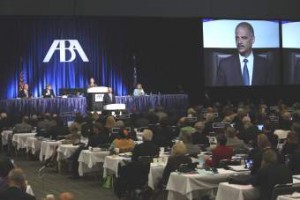
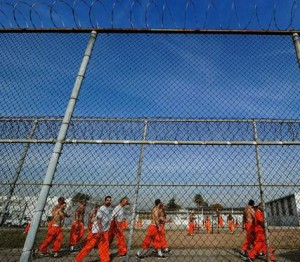
Mandatory Minimum Sentencing Circumvented For Non Violent Drug Offenders
When Attorney General Eric Holder announced that the Justice Department would begin reassess the harsh mandatory minimum sentences on non-violent drug offenders that unfairly target young African Americans and Hispanics, some drug reform advocates said it was a breakthrough. However, our guest Ethan Nadelmann, executive director of the Drug Policy Alliance, says there was no mention of clemency or pardons for those imprisoned with disproportionately long sentences. Attorney General Holder did mentioned that the United States represents about 5 percent of the world’s total population and it incarcerates nearly 25 percent of the world’s prison population. The Drug Policy Alliance has made great strides in criminal justice reforms and to help decriminalize marijuana in states such as Colorado and Washington.
Ethan Nadelmann:
- Early on in the first term, President Obama and Attorney General Holder working with Drug Policy Alliance and a whole range of allied groups did actually change the penalties, the mandatory minimum for crack cocaine.
- Then they dropped the ball. They did nothing in the following years.
- The substance of the speech (recent by Holder) was important. By saying he was going to issue explicit directives to US attorneys around the country that would effect the way they charge people especially low level players in drug trafficking organizations. They’re really pushing this through in a bipartisan way.
- I think he (Holder) does regard this as a legacy issue.
- Obama has recently mentioned incarceration and the need to reduce it in the context of memorializing Martin Luther King Jr.
- We’ve seen the drug law violators from 65 percent of the total of federal prisoners to 48 percent of the total even as the absolute numbers have gone up.
- I think we’re going to see low level drug violators charged in different ways. One thing about mandatory minimums is they shift the discretion from judges to prosecutors.
- Mandatory minimums empower prosecutors at the hand of judges.
- I think what we’ll see is a downshifting in how much prosecutors are looking for. We’ll see fewer people going to prison on federal drug charges.
- Legislators are notoriously resistant to having sentencing reforms be retroactive. They’re willing to say going forward we’ll reduce the sentence but we’re not going to touch the issue of the people who are locked up under the old laws.
- I bet we would see some movement on behalf of the people who are behind bars as well.
- Non violent drug law offenders, sitting there for 10 or 20 years. Statewide 20 percent of all inmates are in for drugs and in the federal prisons its 50 percent.
- Half of all drug arrests in America are for marijuana. Overwhelmingly for marijuana in small amounts.
- When states move forward with the ballot initiative process to legalize marijuana either for medical purposes, which 20 states have now done, or more broadly for all adults which Washington and Colorado have done, that presents a basic issue for the federal government.
- What the US attorney general’s office can do is offer guidelines saying to US attorneys around the country, here are our priorities, here’s how we think you should handle this.
- The feds are basically saying, we get it. That legally regulating marijuana may accomplish the objectives of federal drug control, more effectively than continuing an ineffective prohibitionist policy.
- New York was one of 11 states that decriminalized the possession of marijuana of less than ounce, back in the 70s. Which means you could have less than ounce in your pocket or home and its like a traffic ticket.
- But if its in public view, than you can be arrested. It’s a misdemeanor offense.
- New York is the only state in the Northeast that hasn’t legalized medical marijuana.
- Every 2 years we organize the leading gathering in the world of people who are against the drug war. (reformconference.org) Denver, CO – Oct 4, 5, 6
Guest – Ethan Nadelmann, founder and executive director of the Drug Policy Alliance, the leading organization in the United States promoting alternatives to the war on drugs.
——-
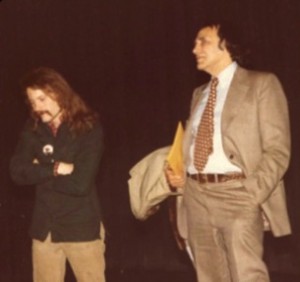
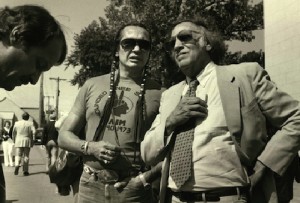
William Kunstler’s Performance at Caroline’ Comedy Club
We hear a part of William Kunstler’s presentation at Caroline’s Comedy Club. This was his last public appearance. He shares a great story about a particular dialogue with a judge and an envelope of marijuana.
———————————————————————–





























